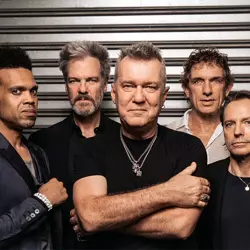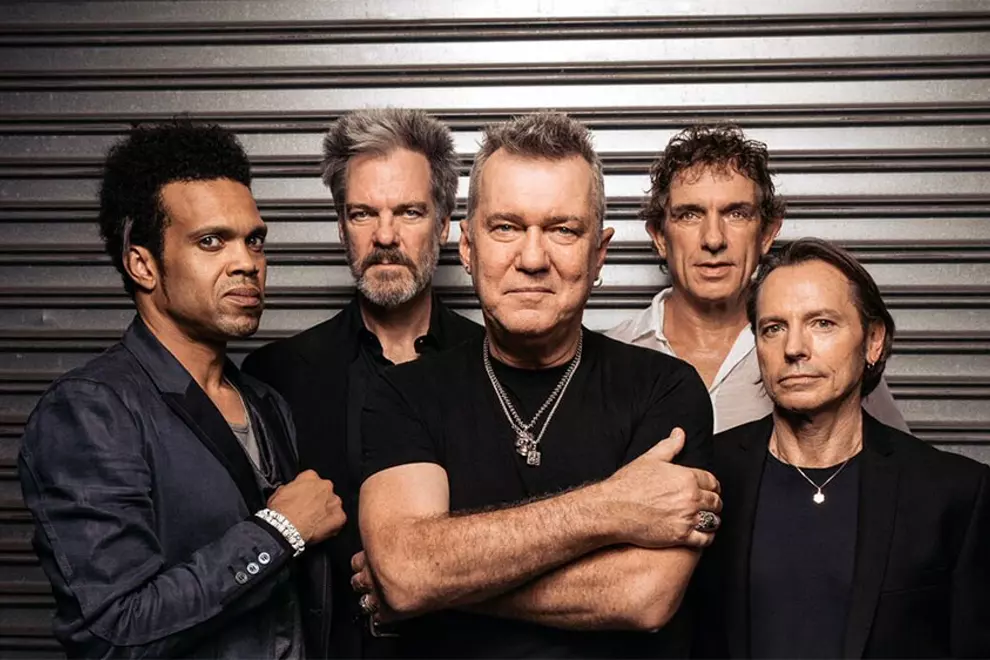 Cold Chisel
Cold ChiselCold Chisel are in the midst of one of the most successful tours of 2024, playing to sold-out crowds across the country.
However, back in May 1983, Chisel were about to detonate in one of the most surprising splits of the decade.
The new podcast Cold Chisel on LiSTNR sees the band exclusively discuss their origins, from cover band in Adelaide to topping the chart with 1980’s East.
But, intense success took its toll on the group, splitting a decade after their formation.
When an attempt to crack the US in 1981 failed miserably, the band concentrated on the Australian market.
In late 1982, they made Europe their focus and played a run of shows in Germany that saw them score rave reviews, one even saying they gave AC/DC a run for their money.
The German market loved hard rock, so Chisel made a swift return, landing in May 1983.
But by this stage, long-running tensions between Chisel singer Jimmy Barnes and drummer Steve Prestwich had reached boiling point.
“Jim would want Steve to play faster,” Chisel manager Rod Willis recalls. “And Steve would want to play slower. It became a bone of contention. As the (German) tour moved on, you could feel this sort of vibe within the band that things weren’t working at all. It just wasn’t happening. I can remember writing in my diary describing the band’s performance as ‘slack’.”
Don't miss a beat with our FREE daily newsletter
Michael Lawrence, who wrote the Chisel anthology Wild Colonial Boys, said bootlegs from that German tour demonstrate that even ‘slack’ Chisel was better than most bands.
“Chisel had this level where they were just unbelievably good. And they weren’t hitting that level a lot on that tour and that was what was annoying people. I think they felt it was imperative, particularly as they were in this country that likes their heavy rock. They were starting to get a bit of a following there. They felt it was incredibly important to do incredible gigs, not just serviceable gigs. And it caused a lot of frustration.”
At one point, Jimmy Barnes tells the podcast he rang up a drummer he knew in Australia and offered to fly him to Germany to replace Steve Prestwich on the tour.
“I figured if we can get a drummer who’d going to play some enthusiasm, at least he could drive us along,” says Jimmy. “Steve was just being an asshole the whole time. He was like us; he was over it, [and] he didn’t want to pay attention to what we were doing.”
On the final night of the German tour, even Chisel’s prime songwriter and unofficial leader, Don Walker, was tipped over the edge.
In an uncharacteristic move, Don pushed his piano over during the show, nearly taking out Jimmy Barnes and bassist Phil Small.
“It missed Phil Small by millimetres,” Chisel tour manager Mark Pope recalls. “He didn’t know Phil was there, but Phil would have been crushed under the weight.”
Don Walker says in the Cold Chisel podcast that it was not his proudest moment.
“I wasn’t having much fun, but that might have helped. I don’t know what was going through my mind at the time. I was pretty frustrated with how things were going; we all were. We were incredibly frustrated. We were all frustrated with Steve.”
When Chisel arrived home in June 1983, they made a critical decision—to sack Steve Prestwich. Not only was he considered a brilliant drummer, but he’d also written Chisel anthems When The War Is Over and Forever Now.
“It blew up,” Rod Willis says. “The band did a crazy thing believing that Steve was the problem, and they sacked Steve.”
Three episodes of Cold Chisel are out now, with two more to follow exploring the band’s final tour, then their comeback and ongoing success. You can listen to the podcast here.
















